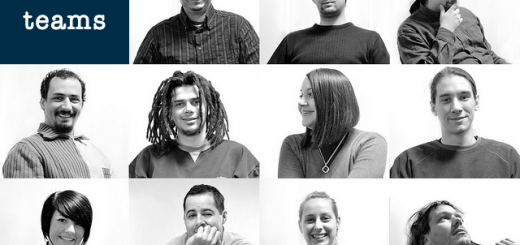Not group work again!….How one subject fosters positive collaborative learning
Does this sound familiar……
Groan, groan….not a group assignment again! Mature-age study, busy lives with jobs and families…and now they want us to actually communicate and collaborate with others to form a team project? Why can’t we just read the literature and write an essay….???
Isn’t that what we all think at first? Let’s consider and learn from the experience of ETL523 students how group work can be a positive learning experience.
What were you trying to achieve?
ETL 523 Digital Citizenship in Schools is a subject in the Master of Education (Knowledge Networks and Digital Innovation) degree. In the 201630 session 52 students completed Assignment 1: Digital Citizenship Learning Module. Part A (worth 50% of the mark) was to work collaboratively in a team/group to co-create content. Given students are mature age and in schools or learning environments where a variety of tools are used it was pertinent here to use a wiki external to Interact 2 in order to ensure experience and facility with this Web 2.0 tool was developed as an additional benefit to the other learning outcomes. Wikispaces has been used for this assignment for the past three years. The ‘classroom’ version provides an umbrella wiki within which other wikis can be created. See the screencast below for further details.
The goal was to create an online learning module using a collaboratively authored wiki. As many pages and design features as desired could be included using the affordances of the tool by embedding artefacts and hyperlinking to resources. Teams of four (13 teams this year) were ‘self-selected’ via a process using a Google doc, with final team structure and module proposals submitted for approval. Students were encouraged to create something valuable and reusable in education – an authentic and real-world task. Given that students came from across Australia and across the world this assignment was challenging as they had to work out communication modes and then collaboration strategies. Some met in person, others Skyped, emailed, set up Google docs, etc. This communication was entirely up to them and not mandated or controlled by the teacher as such. The wiki also provided a discussion place for each team, and some teams set up a wiki page specifically for sharing ideas about content and design.
What did it look like?
The final learning modules had 3 or more wiki pages of content that were rich with resources, including multimedia artefacts sourced globally as well as created by the students. The better modules had a coherent design feature and integrated ideas and language making the module appear as though it had one author. Rubric-based assessment for this included the criteria: 1) Digital citizenship concepts, 2) Digital citizenship development, 3) Learning module authoring.
Some positive outcomes from this group assignment are shared here in student reflective blog posts.
In Learning without walls, Karen shares:
Initially I was apprehensive about my first group work assignment via distance learning. My initial fears were soon put to rest as part of Group 5.2. Group 5.2 worked collaboratively and without walls by using a variety of communication and collaboration tools to produce a digital citizenship learning module that we could be proud of. Donald Tapscott calls these kinds of tools “weapons of mass collaboration”
in Assignment 1 reflection, Heather shares:
It was clear from the assessment rubric and online class meeting that this assignment was as much about learning about and through collaboration as it was about the particular aspect of digital citizenship we had elected to focus on.
How can I make this happen?
This type of group assignment required careful communication from the start. It was not suitable to randomly create groups of four as the topics were chosen by the students from different concepts – and students came from a range of educational areas and levels. It was best they chose their own partners. The Wikispaces platform (yes you can see the home page, but with current permission setting only members can see within) required careful construction and understanding of how a wiki of this type works so that team spaces could be set up for effective work flow. This is not difficult but can be time consuming if new to wikis. This type of Wikispace is free for education. Finally, two online meetings were held in Week 2 and Week 6 of the session (using Adobe Connect) to support student understanding of the assignment and help facilitate group formation. These were recorded and shared. Around 50% of the class were able to attend each meeting. Discussion forum interactions within i2 continued the conversations started at these meetings as well.
If you are interested in finding out more about how to set up this type of group collaborative assignment please contact me (the Adjunct for this class) at any time!




1 Response
[…] participation in the digital environment – Copyright. Not group work again!….How one subject fosters positive collaborative learning – Quality Learnin…) Does this sound familiar…… Groan, groan….not a group assignment again! Mature-age study, […]